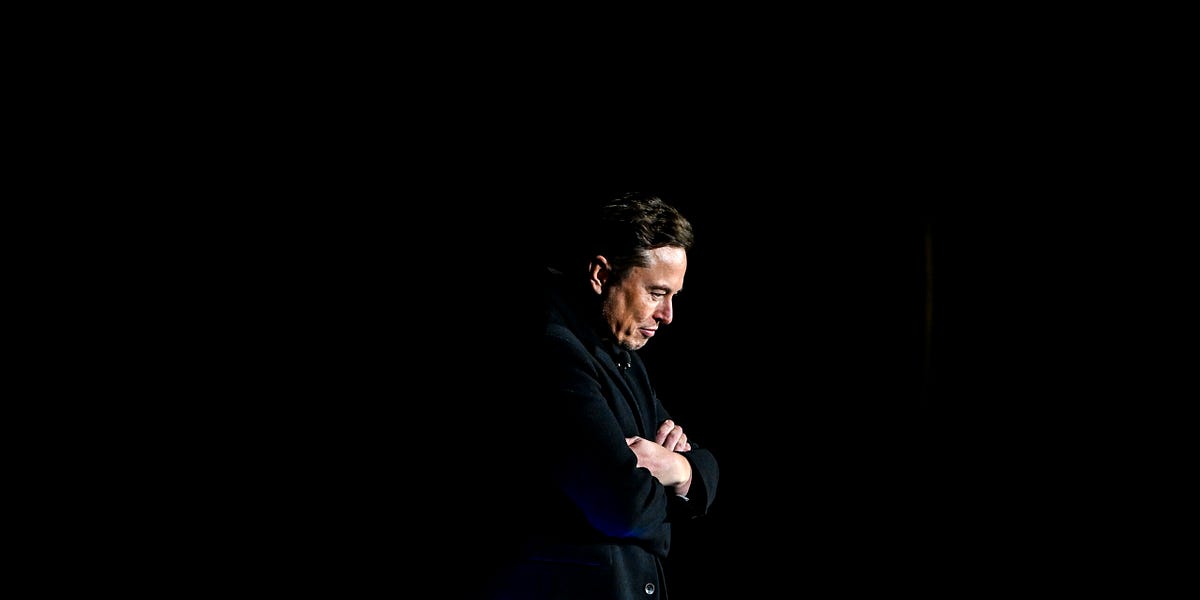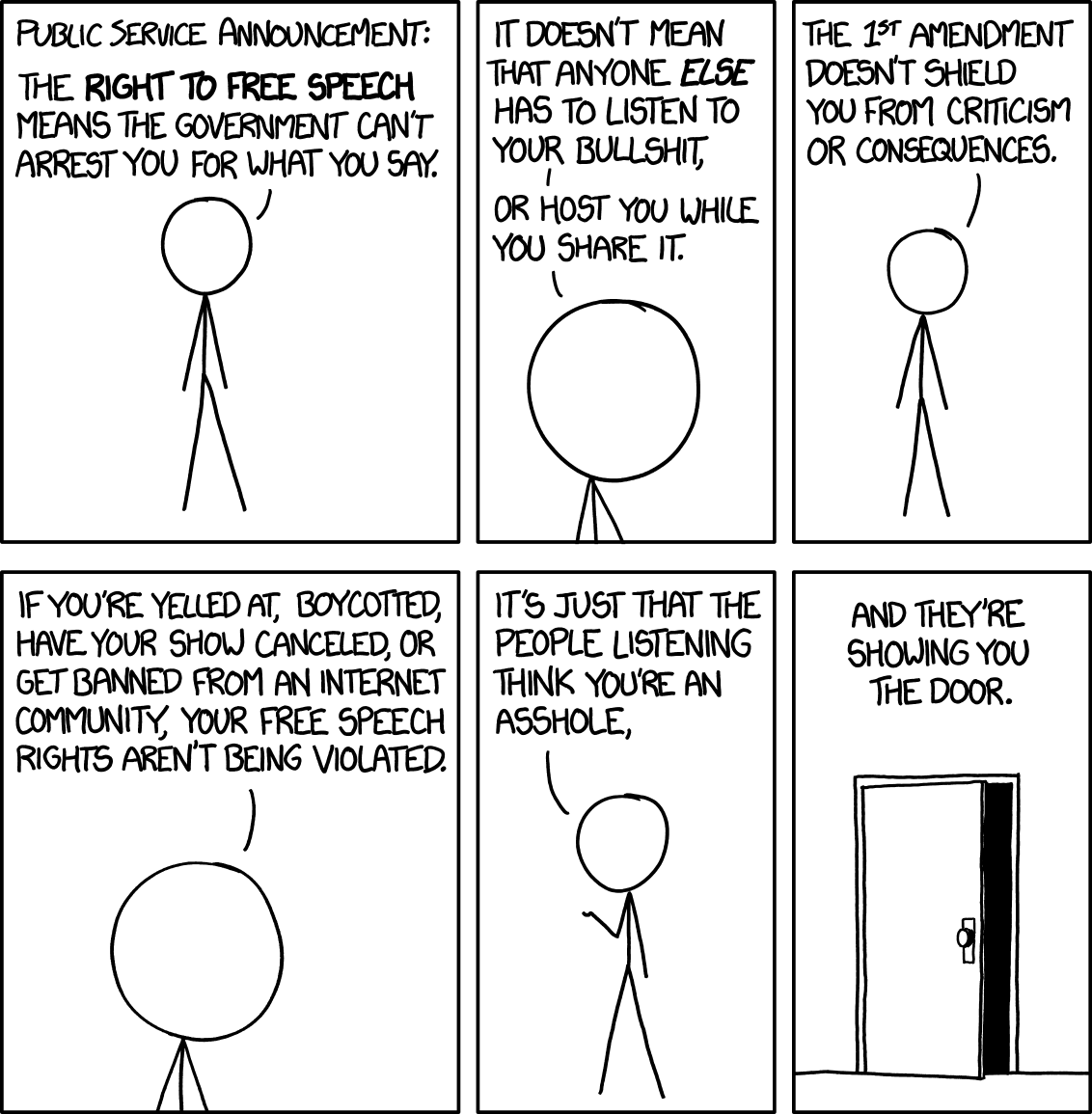L]
It is my understanding that these large internet companies were given protections by the government to act as the "town square" for free speech. This helps protect them from slander lawsuits because a poster said something.
That's not quite it . A (very) brief explainer of Section 230 of the CDA (what you are referring to).
In essence, this section was crafted as a response to a court case (Stratton), which held that Prodigy (think of it as a ... forum, like this one) could be held liable for moderating its message boards.
This is a weird distinction, but traditionally
publishers are held to be liable for defamatory statements- not just the makers of the statements. In book publishing, for example, the author isn't the only one liable for the defamatory statement- the publisher of the book is, as well. The Stratton case held that, by engaging in moderation (by removing offensive posts) Prodigy was acting like a publisher. Weirdly, if Prodigy had engaged in no moderation at all, then they would not be liable.
And that's the distinction of Section 230. It's the opposite of the "Town Square."* Section 230 was a rebuke to the idea that internet platform must be foreclosed from the possibility of moderation; instead, it allowed "providers of an interactive computer service" (websites, etc.) to moderate their content without fear of becoming liable as a publisher- the goal was to allow the platforms to develop their own, innovative methods of policing content as needed (while competition would allow the continued unfettered free speech).
For the most part, it appears to have been successful. In my time, I would say that speech is more robust than it was before- there is a greater diversity of opinions. Different platforms have different moderation policies- but very few have none at all (signal to noise issues and illegal content tends to shut those down quickly). In the end, it's always the same.
People seek out the platforms that they like, and then complain about the moderation that makes the platforms that they like successful. Plus ca change.
*In fairness, it creates a Town Square in aggregate. The mistake people always make is demanding that every single forum operate as their personal Town Square.




